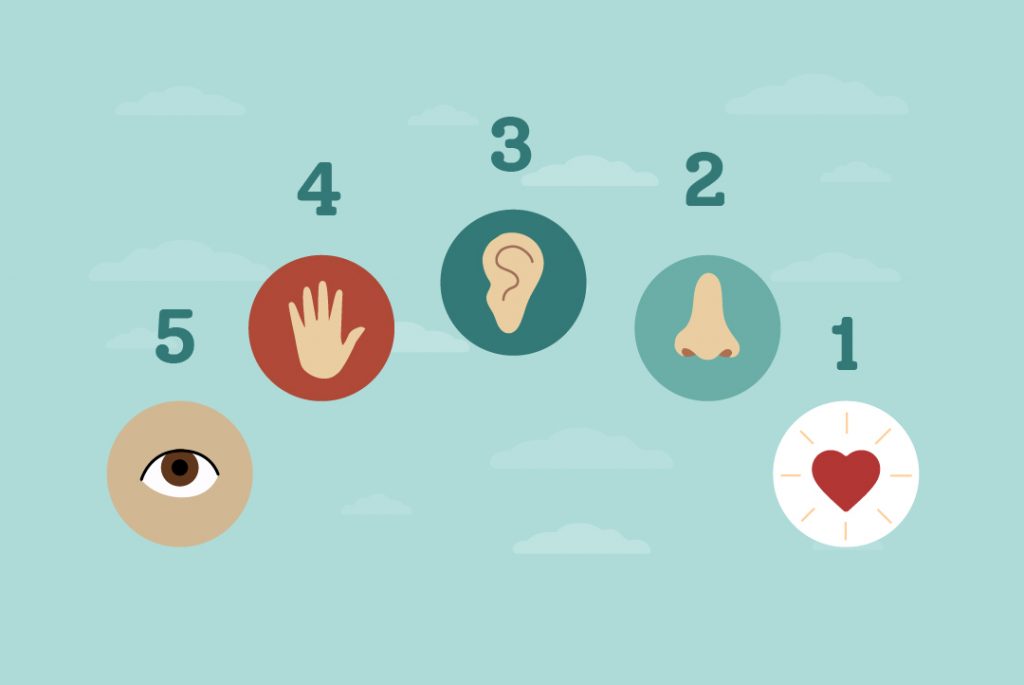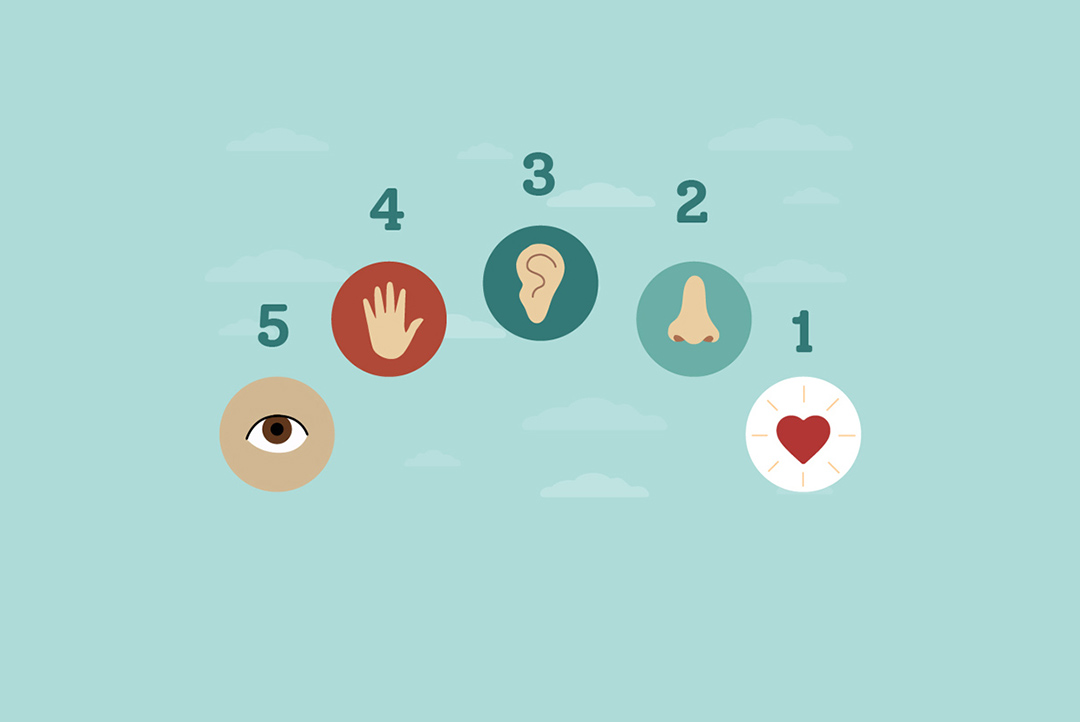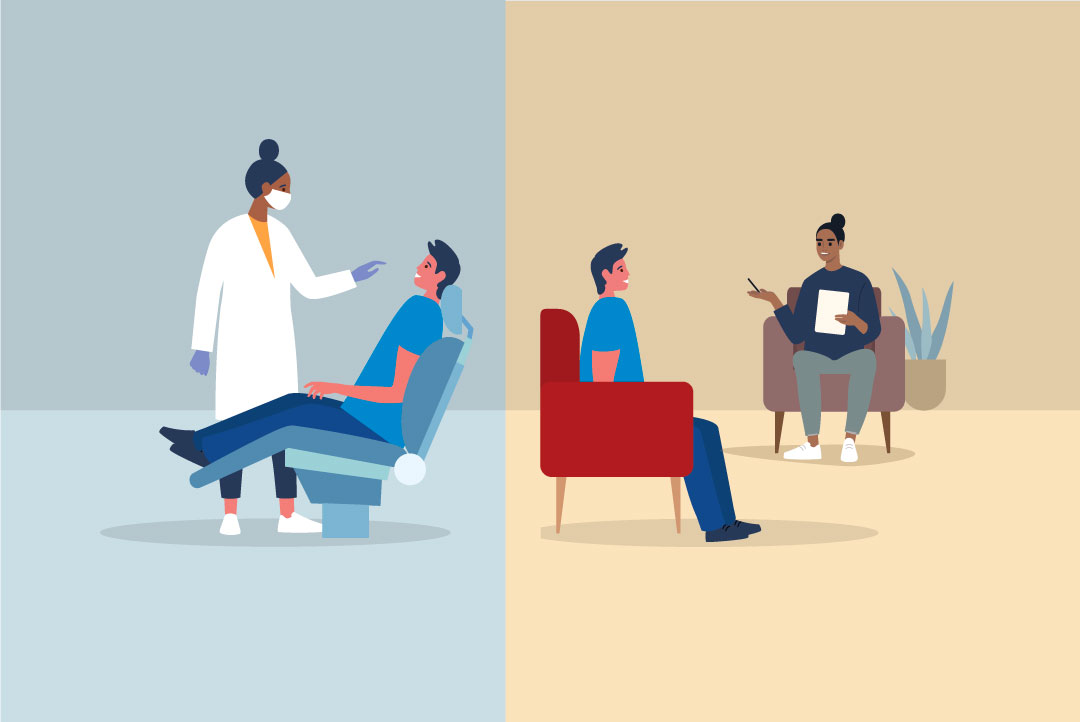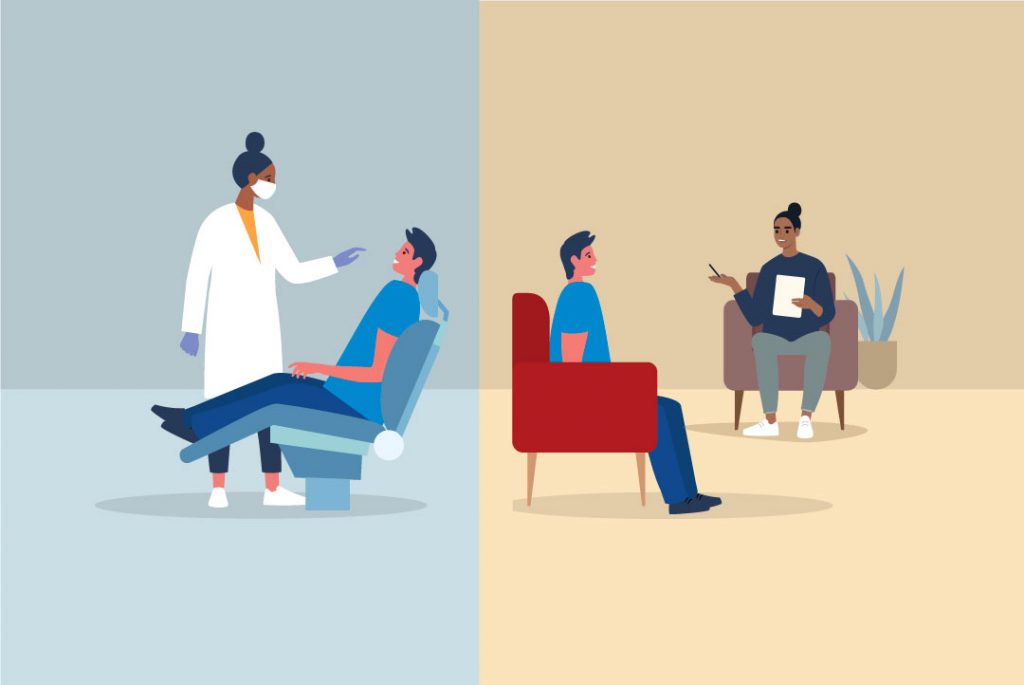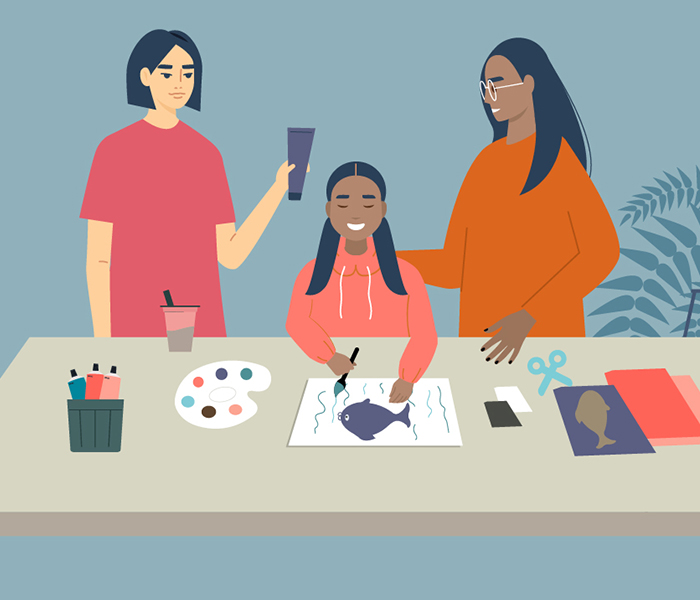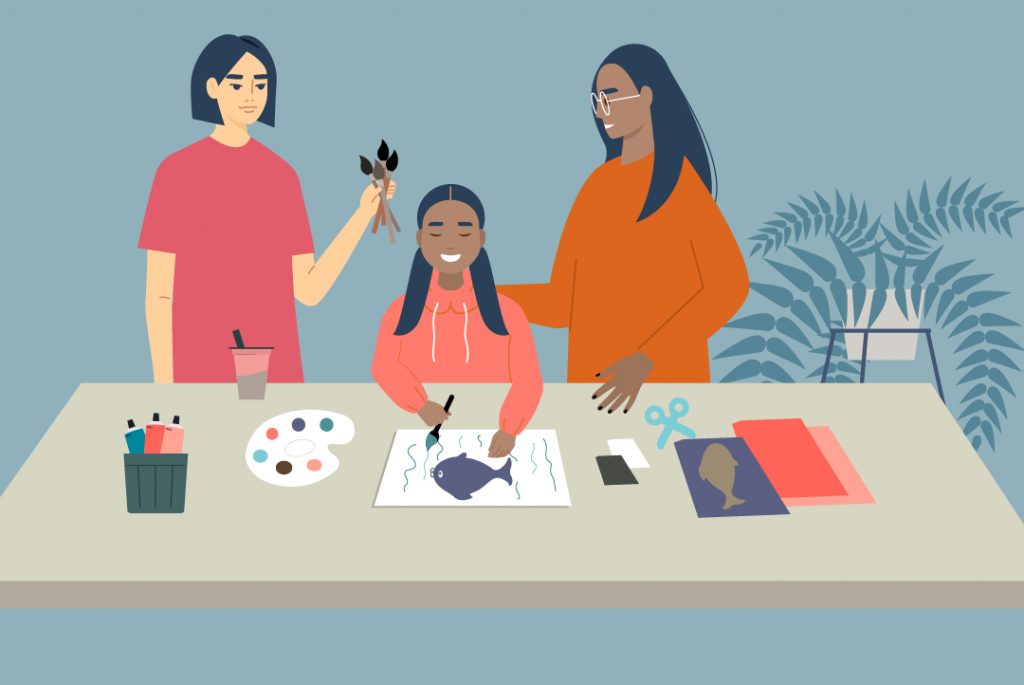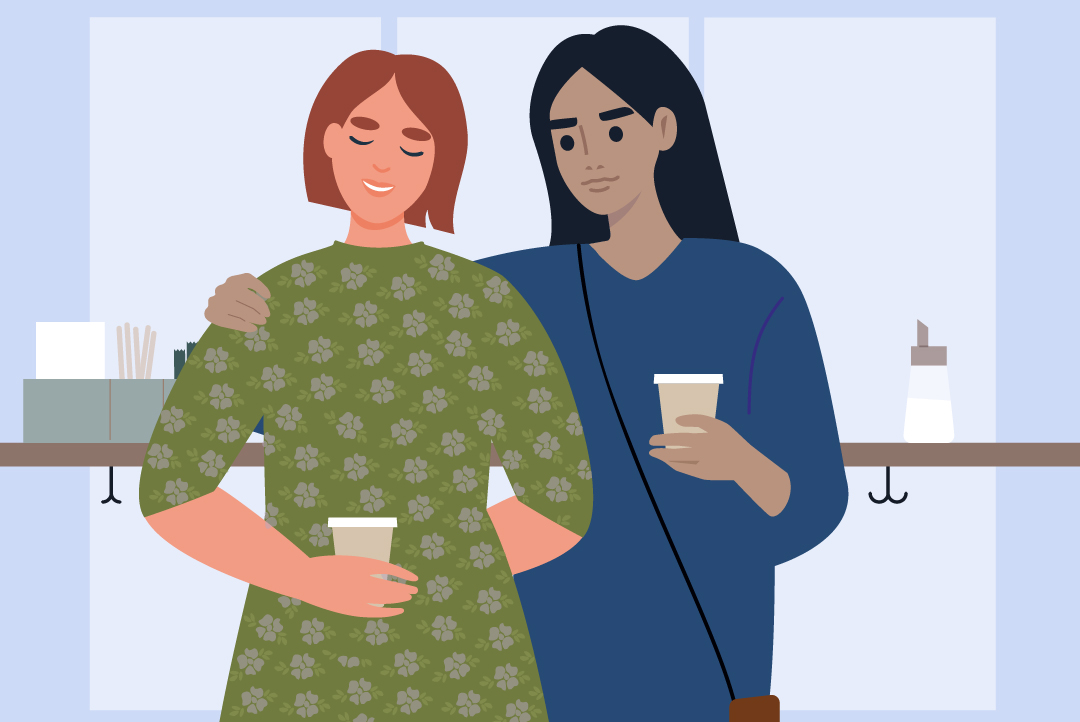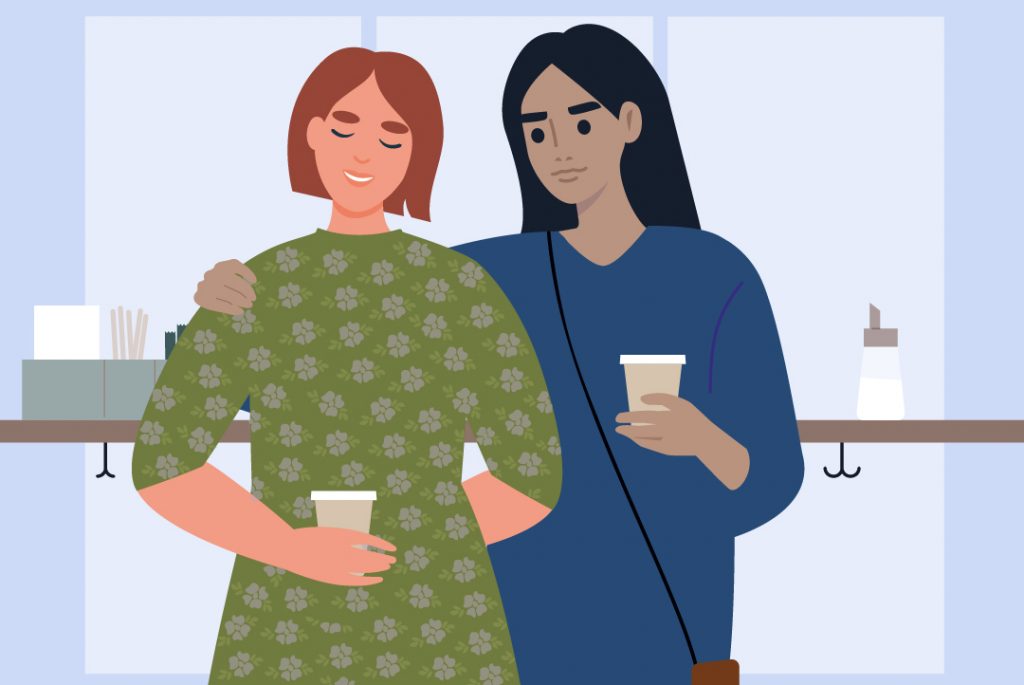Worrying can bring your day to a halt. When you’re focused on past experiences or anxiety about the future, it can be hard to concentrate and think clearly. And when that happens, you can miss what’s going on in the here and now.
Grounding can help anyone, at any age. This mindfulness technique works to redirect your thoughts back to the present with the help of your five senses. Grounding is simple, powerful and only takes a few minutes. And it’s as easy as counting down 5, 4, 3, 2, 1.
Listen below to get started. Grounding is a great tool to have anytime, but especially as we enter the holiday hustle.
Hey, folks. I’m Alex, a licensed social worker and trauma coach.
You know, after a period of acute, or prolonged stress – which many might consider traumatic – it’s normal, perfectly normal, to experience flashbacks of our traumas or the stressors we’ve endured. It’s common to experience depression as a result of our thoughts about the past, or even anxiety due to racing thoughts about the future.
And sometimes we can even get stuck in a loop of constant worry and fear, which prevent us from being present in the moment. We can sometimes get stuck in our past or spend too much time worrying about the future that we miss what’s going on around us in the present moments.
Today, I’m going to take you through a grounding technique. Grounding techniques are practices that we can do for ourselves which help control symptoms, like worry, and bring one’s focus back to present moments.
So the grounding technique I’m going to talk to you about today is simply known as the 5,4,3,2,1 technique – and it’s very simple: If you catch yourself thinking too much about the past or future, you can bring your focus back to the present by engaging your senses.
And specifically, you want to look for 5 things that you can see,
4 things that you can touch or feel,
3 things you can hear,
2 things you can smell,
And 1 thing that you can taste.
So, if I were doing this exercise, it might be because I’m noticing myself struggling to concentrate – maybe I’m starting to worry about several upcoming deadlines that I have. I might try this exercise to reset my focus a little and increase my awareness to the tasks that are present in front of me.
First, I’d identify 5 things that I could see – I might look around my office for small objects or details. Or I might notice the way the light is coming through my window. I also keep a diffuser on my desk, so I might focus on the vapor coming from the diffuser.
Once it feels like you’ve started to really engage with your sense of sight, you want to move on to things that you can touch or feel. And this can be noticing the sensation of the clothing on your body, if there is any sun coming through your window that may be touching your skin, if you can feel that warmth, the feeling of the chair you may be sitting in. Or if you’ve got objects on your desk or near to you, you could pick these things up and notice the weight of them, or the texture, or any other physical aspects.
Next, we engage our hearing – you want to pay attention to the sounds that your mind may have tuned out. It could just be white noise, or maybe the subtle ticking of a clock, or if you could hear the wind outside, or maybe a car passing by your home.
Second to last is our sense of smell, and here’s where I have some examples on things that you can actually double down on. For example, the diffuser I mentioned earlier. These are things that I can reflect on in multiple ways, and just as I might notice their appearance, I can also take a moment notice their aroma.
Lastly is our sense of taste, and this too can be duplicated, such as a warm cup of coffee – this is something that you can hold and feel the warmth of it, you can smell the aroma of it, but you can also sip and taste it. Some other good ideas are simply keeping some chewing gum on you, or mints or candy.
Now I know this was a very simple exercise – but it’s meant to be. And it’s also a powerful exercise. With practice, you may not even need to do the full list. You might just engage with one sense or another and find that that was enough to get your mind refocused. Or if you’re just starting out, you might need to do the exercise a couple of times. Or maybe do the exercise in a different location or while going for a walk.
It’s easy to sometimes get lost in our thoughts and struggle to focus on our present moments. But if or when you find yourself lost in your thoughts, just remember you can always ground yourself by engaging your senses to bring yourself back to the present. And it’s as easy as counting 5,4,3,2,1.
Check out the resources below to learn how your Costco benefits can help you care for your mental health.
